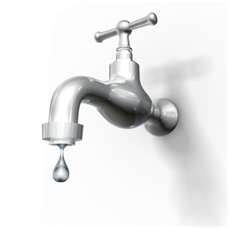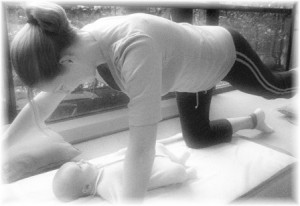This re- blog Bladder Health, Water, and the Acid-Alkaline Balance
in Be Fit & Well, Bladder, Healthy Bladder Tips, Myth Busting, Nutrition
is a great reminder…AND packed full of important information on bladder health.
Photo Credit: www.homespothq.com
Drink more water . . . I know, I know. Don’t we all know this? We do, but I think sometimes we lose sight of the why. After reading this little article and maybe doing some homework on your own, you’ll be drinking water from now on, for bladder health.
In Missy Lavender’s [2] book, You Go Girl, But Only When You Want To [3], we are asked why fluid management is important to bladder health. While most everyone knows that fluids are critical to all functions of the body, and the bladder is responsible for eliminating a great deal of those fluids, when hampered by bladder leakage one could think about hydration only as it pertains to how often one needs to pee.
In other words, you may think if you limit your fluid intake, you’ll need to use the bathroom less frequently. On a strictly input/output basis that would be true; however, your body will instead conserve fluids by decreasing what the kidney and bladder would normally eliminate. As a result, the amount of urine you expel is decreased, and it becomes more concentrated.
From You Go Girl: “Just as concentrated lemonade makes your mouth pucker, concentrated urine can make your bladder ‘pucker’ or contract.” Contraction creates that “gotta go” feeling, and then when you go, there’s not much there. And, like undissolved lemonade, your bladder is left with gritty crystals of waste. Conversely, staying hydrated with small amounts of water throughout the day, equaling about 6 – 8 glasses, is the perfect way to keep the concentration of wastes diluted, and your bladder relaxed and happy.
“Researchers estimate that 75% of Americans and half of the world’s population are chronically dehydrated . . . I am always astounded by the number of patients I see who drink only 1 or 2 cups of water a day, typically in the form of coffee. If you fall into this category, you’ll likely see tremendous health improvements simply by increasing your water consumption . . . Consider this: by increasing your water consumption to 5 cups per day (still inadequate) you’ll lower your risk of developing colon cancer by 45%, breast cancer by 79%, and bladder cancer by 50% . . . Some people have a really hard time accepting that something as simple as drinking more water is sufficient to make a difference to their health.”
A pioneer in understanding and communicating the relevance of the body’s acid-alkaline balance and the water we drink, Cook explains:
“A healthy human body maintains a proper acid-alkaline balance primarily by doing two things – [1] expelling excess acid through the detox organs [kidneys, bladder, skin], and [2] neutralizing acid with alkaline substances, such as calcium or magnesium stored in the body and derived from dietary sources.
“Typically your body tries to eliminate excess acid before it resorts to neutralizing the acid that’s left over. The kidneys are the front line soldiers in the body’s war on acid, expelling acid as quickly as possible in the form of urine.”
A note on acid: It’s not the acid you feel after eating big meals. It’s the chemical reaction to a particular food or drink or how it affects pH levels in the body. For instance, lemons are an acidic fruit, but they alkalize in the body – a good thing.
Here’s why you should know this: More than 30 degenerative and life-altering conditions and disease can be linked to a too acidic internal environment, including candidiasis, kidney disease, and osteoporosis. Cook’s book, The Ultimate pH Solution [5], includes complete lists and lots of science and good sense to help communicate the acid-alkaline message.
http://womenshealthfoundation.org/blog/?p=4500
Contact me at vanea@sportsfocusphysio.com.au or call 9958 8986 and make an appointment to discuss your bladder health !!



